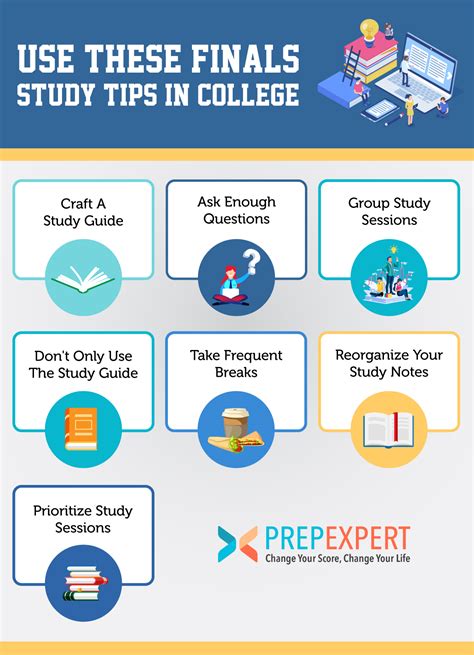As the end of the semester approaches, finals loom like formidable mountains on the academic horizon. However, with the right strategies and a steely determination, you can conquer these exams and emerge victorious. Here’s your comprehensive guide to study tips for finals:

1. Plan and Prioritize
Effective studying begins with a well-structured plan.
- Create a Study Schedule: Allocate specific time slots for each subject, prioritizing the most challenging ones. Stick to your schedule as much as possible.
- Break Down Material: Divide large chunks of material into smaller, manageable sections. This will make studying less daunting and easier to recall.
- Prioritize Important Concepts: Identify the key concepts and ideas in each course syllabus. Focus on mastering these core principles.
2. Active Learning Techniques
Engaging actively with the material enhances retention and understanding.
- Spaced Repetition: Review material at increasing intervals (e.g., 1 hour, 1 day, 1 week). This helps strengthen memories.
- Flashcards: Create flashcards with key terms, definitions, and concepts. Test yourself regularly.
- Teach the Material: Explain the concepts to a friend, family member, or imaginary audience. This forces you to articulate your understanding.
- Practice Problems: Solve practice problems and past exams to test your knowledge and identify areas for improvement.
3. Efficient Note-Taking and Review
Organize and condense your notes for effective recall.
- Concise Notes: Take brief, clear notes during lectures and readings. Highlight key points and draw diagrams.
- Active Note-Taking: Engage with the material by annotating notes, adding questions, and making connections.
- Visual Aids: Incorporate charts, diagrams, and mind maps to enhance visual memory.
- Regular Review: Schedule regular review sessions to reinforce concepts and identify gaps in understanding.
4. Study Environment and Time Management
Create an conducive study environment and manage your time wisely.
- Dedicated Study Space: Find a quiet, well-lit area with minimal distractions.
- Eliminate Distractions: Turn off electronic devices, close unnecessary tabs, and minimize noise levels.
- Time Blocking: Use the Pomodoro Technique or other time management methods to alternate focused study sessions with short breaks.
- Reward Yourself: Break up long study sessions with small rewards to maintain motivation.
5. Study Groups and Collaboration
Team up with classmates to enhance your preparation.
- Study Groups: Form study groups with classmates who share your goals and strengths.
- Collaboration: Work together to explain concepts, solve problems, and quiz each other.
- Peer Teaching: Take turns leading study sessions and explaining material to reinforce understanding.
- Support Network: Study groups provide a supportive environment where you can ask questions and share concerns.
6. Health and Well-being
Maintain your physical and mental well-being during finals season.
- Healthy Diet: Nourish your body with nutritious foods that fuel your brain and provide sustained energy.
- Regular Exercise: Engage in regular physical activity to reduce stress and improve cognitive function.
- Sufficient Sleep: Aim for 7-9 hours of quality sleep each night to ensure optimal brain performance.
- Stress Management: Practice relaxation techniques such as deep breathing, meditation, or yoga to manage stress levels.
7. Tips and Tricks
- Use Mnemonics: Create acronyms, rhymes, or songs to help you memorize difficult concepts.
- Sketch and Draw: Draw diagrams, charts, or flowcharts to visualize and understand complex material.
- Summarize and Paraphrase: Condense notes and readings into your own words to enhance retention.
- Identify Your Learning Style: Determine your preferred learning style (visual, auditory, or kinesthetic) and adapt your study methods accordingly.
8. Common Mistakes to Avoid
- Cramming: Avoid last-minute cramming. Start studying well in advance to give your brain ample time to process the information.
- Neglecting key Concepts: Do not ignore the most important concepts and ideas. Focus on mastering the core material.
- Passive Studying: Do not simply read or highlight notes. Engage actively with the material through practice problems, note-taking, and discussions.
- Ignoring Practice: Practice is essential for solidifying understanding. Solve practice problems and past exams to test your knowledge and identify areas for improvement.
- Neglecting Self-Care: Do not neglect your physical and mental well-being during finals season. Take care of your health and reduce stress to maintain optimal brain performance.
FAQs
-
When should I start studying for finals?
Start studying well in advance, at least 2-3 weeks before exams. -
How many hours should I study each day?
Aim for 3-4 hours of focused study each day, with breaks in between. -
What is the best study technique?
The most effective study technique is one that engages you actively and helps you retain information. Experiment with different methods to find what works best for you. -
How can I overcome procrastination?
Set realistic study goals, reward yourself for completing tasks, and create a positive and distraction-free study environment. -
What if I am feeling overwhelmed?
Break down large tasks into smaller ones, prioritize important concepts, and seek support from classmates or instructors if needed. -
Can I study effectively in a group?
Yes, study groups can provide support, accountability, and opportunities for collaboration and peer teaching. -
How can I manage stress during finals season?
Practice stress-reducing techniques such as deep breathing, meditation, or exercise. Take breaks, get enough sleep, and maintain a healthy diet. -
What should I do if I get stuck on a concept?
Review your notes, seek clarification from your instructor or classmates, or explore alternative resources such as videos or online tutorials.
